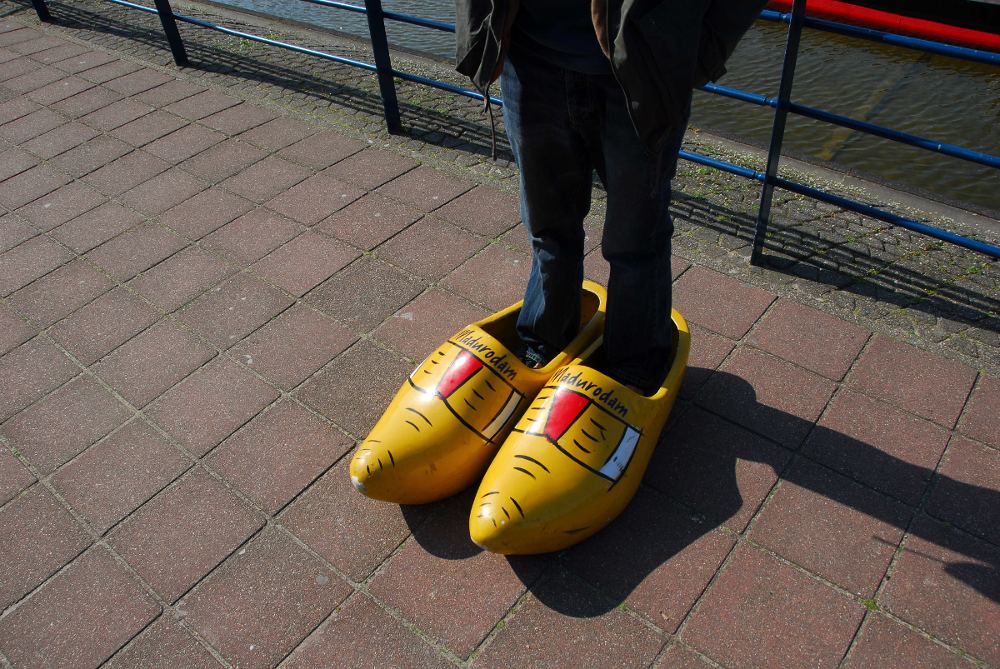“Nothing is true and everything is possible.”
In my local community, I see signs like “No woke zone” and “God’s got this.” To me, those posters translate into “Around here, we don’t welcome new ideas and we offload all responsibility for change.” You get the idea—the conditions for effective systems change in my town are not exactly conducive for bold thinking and doing things differently.
In a broader context, systems change currently confronts significant headwinds. It seems to me that the conditions for change have become much more challenging in the last 20 years. For example, every day brings new stories of:
- Extremism growing
- Polarization increasing
- Autocracies metastasizing
- Inequality widening
- Trust diminishing
- Disinformation proliferating
- Professional media and local journalism declining
- Consumption of social media climbing
- Greed abounding
- Fear simmering
- Hate boiling
- Elite condescension stewing
- Grievance brewing
These conditions provide fertile ground for opportunism and exploitation, both of which are rewarded and rationalized in this culture. And, it seems that the standards to which we aspire are over-indexed on physical indicators of success, e.g. wealth, appearance, and acquisition. It is in this cultural context that we are trying to hang on to hope. We are not only stuck in this context, we are also trapped by it.

But, here’s the hope: These trends don’t reflect immutable conditions, they simply represent collective choices that we can change individually and organizationally. In the midst of those growing trends and shrinking standards, the question is, “How do we get ourselves out of this muck?”
If you are a reader of this blog, you know I am fond of scales to provide a sense of direction and possibility – a growth ladder or a way forward. Instead of boring you with a laundry list of scales, let me share some of the differences in perspective at the bottom and top ends of the scales without explicitly detailing each level. Essentially, the main point is that, while life may be richer and more fulfilling at levels 4 and 5, life is much easier at levels 1 and 2. And that, to me, is why we are stuck in the muck. We don’t want to do the work required to make a difference. Making effort, however, is a necessary prerequisite to effortlessness. Yes, I know, that’s a stretch, but you can go to the link if you want elaboration. Here are some examples:
Competition is easier than collaboration. We live in a sports-dominated world in which every contest has a winner and a loser. It is much simpler to rally the troops to defeat a given enemy than to find common ground and to form grow-grow solutions with multiple partners. In a competition, there is always a winner and a loser. In a collaboration, there are shared responsibilities and credits among all the stakeholders. The latter is much harder until it makes life better.
Concepts are easier than skills. There is a big difference between being able to talk about ideas and knowing how to do what is required to achieve a desired outcome. Academics are famous for articulating esoteric ideas that mystify their students. Politicians are adept at throwing around concepts they have no idea how to implement. Concepts can make you sound really smart. Skills can actually make you valuable. Skills take effort to learn.
Selling Services is easier than co-creating solutions. The best way to gain customer loyalty is to bring new ideas and work closely with customers to design potential solutions for problems they are grappling with. If you ask a customer who their trusted advisors are, they will not list all those vendors who are trying to push their products on them regardless of their need. They will tell you the few people on their speed dial who bring fresh ideas, challenge their thinking, and work intimately with them to solve their problems. Co-creating requires an investment of time and effort.
Ignoring or Informing is easier than involving or inspiring. Many leaders think that just letting people know where an organization is heading is sufficient to keep them engaged. The most effective leaders take the time to ensure that their employees understand their roles and goals and feel responsible for achieving them. The very best leaders inspire people with their vision, their values, and their personal passion for excellence. Ignoring or informing people is easy. Involving and inspiring people takes a great deal of energy and commitment, but it produces greater results in the long run.
Parroting content is easier than paraphrasing experience. Trying to understand the frame of reference of another person can be a challenge, particularly when we strongly disagree with their point of view. If we want to persuade another person to change an opinion or belief, we know that trying to impose our point of view rarely, if ever, works. A great deal of literature suggests that the best way to have your view heard is to first demonstrate understanding to the other person’s point of view, i.e. you earn the right to initiate by responding first. This responsiveness is often interpreted as repeating verbatim what the other person said. While the person may appreciate that you were listening, the content response is unlikely to have much of an impact, other than to irritate them over time. Paraphrasing another person’s experience in fresh, new ways requires deep listening and a lot of creative energy. Much harder.
Tolerating is easier than welcoming. With all the culture war skirmishes occurring regarding DEI initiatives, one might wonder what the root causes may be. For some, there is zero tolerance for difference. Others may grudgingly tolerate difference and inclusion, but strongly prefer a homogenous status quo. What takes far more work is to wholeheartedly embrace differences and welcome people not only to join, but also to experience a sense of belonging. Welcoming people requires us to open our hearts, minds, and souls. Not always easy, but ultimately fulfilling.
Physical and intellectual are easier than emotional and spiritual. Most of our early lives are focused on growing physically and intellectually. We learn to walk and talk. We learn to play and study. We go to school and find a job. We earn money and buy a house. We accumulate wealth. If we are lucky, we build strong character and loving relationships along the way. Our early conditioning, however, does not typically encourage us to create a balanced life—one with real purpose and passion.
Excelling in any one dimension of our life seems very doable. Developing balance and experiencing harmony require an entirely different kind of energy.
I could go on, but suffice it to say that there are always choices that are easy and choices that are hard. My bias is that the harder choices often lead to more satisfying results. You might want to create a narrative to support these additional examples:
- Observing is easier than contributing and leading
- Making money is easier than finding meaning
- Simplicity is easier than complexity
- Certainty is easier than complexity
- Appeasement is easier than alignment
- Autocracy is easier than democracy
All of these choices require effort, but, over time, the efforts become more effortless as new attitudes, skills, and knowledge help us become who we want to be as individuals, organizations, and nations. As a result, we don’t feel stuck or trapped.
My opening quote for this post captures what I believe is the state of mind in which we find ourselves in this moment, what led us into this muck, and what may represent our hope for the future. In the following excerpt from The Origins of Totalitarianism, Hannah Arendt summarizes succinctly what happens when people choose the “easier” path instead of the more fulfilling possibility. They end up believing that “everything is possible and nothing is true.” In that “easy” state of mind, they are more vulnerable to mass propaganda, no matter how absurd.
“In an ever-changing, incomprehensible world, the masses had reached the point where they would, at the same time, believe everything and nothing, think that everything was possible and that nothing was true. … Mass propaganda discovered that its audience was ready at all times to believe the worst, no matter how absurd, and did not particularly object to being deceived because it held every statement to be a lie anyhow. The totalitarian mass leaders based their propaganda on the correct psychological assumption that, under such conditions, one could make people believe the most fantastic statements one day, and trust that if the next day they were given irrefutable proof of their falsehood, they would take refuge in cynicism; instead of deserting the leaders who had lied to them, they would protest that they had known all along that the statement was a lie and would admire the leaders for their superior tactical cleverness.”
So, where is the hope and how do we get unstruck? As I was writing this post, Biden’s decision to drop out of the 2024 race was announced. His courageous act may help us reverse the slope we have been sliding down. There is now a fighting chance that we can avoid a disastrous win by Trump. If not, perhaps all we can hope for is a change of hearts. If we don’t want to get stuck in the muck, then we pretty much have to give a f*ck about something greater than physical pride and dictatorial dominance.
Everything may not be possible, but some things are. Hope rests in the possibility that things can change under certain conditions. I believe it is possible that Kamala can energize enough youth, Black, Hispanic, and women voters to eek out victories in enough swing states to win the election. While I do not think she is the ideal candidate, I think three more months of perceived democratic dysfunction will not create the conditions required to win. It really depends on three factors: 1) how sick the country really is, 2) how strongly Kamala wages this campaign, and 3) how hard each of us is willing to work to avoid the dangers of Project 2025.
I’m hoping we can reverse the trends we have been seeing in conditions and standards and create a healthier, more humane, and more holistic country. I don’t know if Kamala can win, and I don’t know if we will ever experience effortlessness, but at least we can move away from hopelessness if we do the work to get unstuck. May it be so.
Also published on Medium.



One of your best! Thank you❤️